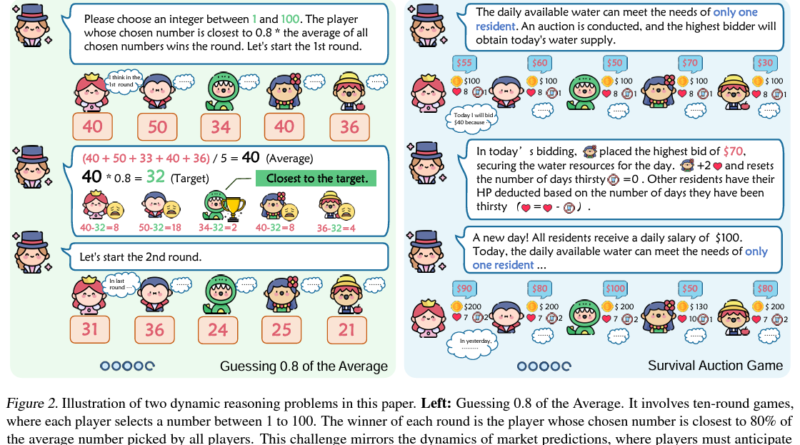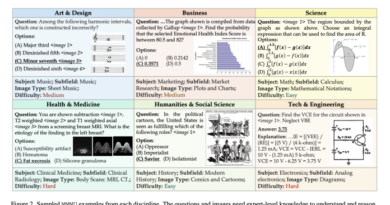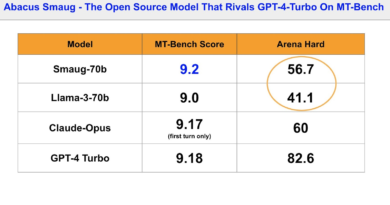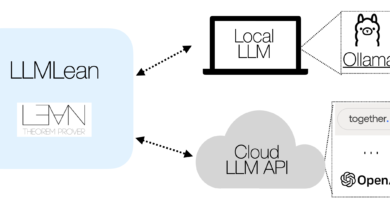Outsmarting Uncertainty: How ‘K-Level Reasoning’ from Microsoft Research is Setting New Standards for LLMs
Delving into the intricacies of artificial intelligence, particularly within the dynamic reasoning domain, uncovers the pivotal role of Large Language Models (LLMs) in navigating environments that are not just complex but ever-changing. While effective in predictable settings, traditional static reasoning models falter when faced with the unpredictability inherent in real-world scenarios such as market fluctuations or strategic games. This gap underscores the necessity for models that can adapt in real-time and anticipate the moves of others in a competitive landscape.
The Emergence of K-Level Reasoning
The recent study spearheaded by Microsoft Research Asia and East China Normal University researchers introduces a groundbreaking methodology, known as “K-Level Reasoning,” that propels LLMs into this dynamic arena with unprecedented sophistication. This methodology, rooted in game theory, is a testament to the collaborative effort bridging academia and industry, heralding a new era of AI research emphasizing adaptability and strategic foresight.
🔥Explore 3500+ AI Tools and 2000+ GPTs at AI Toolhouse
Understanding K-Level Thinking
At the core of K-Level Reasoning lies the concept of k-level thinking, where each level represents a deeper anticipation of rivals’ moves based on historical data. By recursively employing k-level thinking, LLMs can simulate the decision-making processes of adversaries and make informed choices in response.
This approach adopts the perspective of rivals to anticipate their moves and strategically plan a course of action. The recursive nature of k-level thinking allows the model to consider various levels of depth, enabling a more comprehensive understanding of the dynamic environment.
Empowering LLMs in Interactive Environments
The integration of K-Level Reasoning enables LLMs to navigate the complexities of decision-making in interactive environments. In such settings, the ability to anticipate the actions of others and plan accordingly is crucial for success.
Through the application of K-Level Reasoning, LLMs gain a strategic advantage by considering multiple levels of decision-making, ultimately leading to more informed and effective choices. This empowers the models to adapt to the ever-changing dynamics of the environment and outperform traditional static reasoning models.
Setting New Standards for LLMs
“K-Level Reasoning” is not just a theoretical concept; it is backed by extensive empirical evidence showcasing its superiority in dynamic reasoning tasks. Meticulously designed pilot challenges, including the “Guessing 0.8 of the Average” and “Survival Auction Game,” were used to test the approach against conventional reasoning methods.
In the “Guessing 0.8 of the Average” game, the K-Level Reasoning approach achieved a win rate of 0.82 against direct methods, demonstrating its strategic depth. Similarly, in the “Survival Auction Game,” the approach not only outperformed other models but also showcased remarkable adaptability, with an adaptation index significantly lower than traditional methods, indicating a smoother adjustment to dynamic conditions.
This research marks a significant milestone in AI, showcasing the potential of LLMs to transcend static reasoning and thrive in dynamic, unpredictable settings. The collaborative endeavor between Microsoft Research Asia and East China Normal University has not only pushed the boundaries of what’s possible with LLMs but also laid the groundwork for future explorations into AI’s role in strategic decision-making.
Evolving AI’s Decision-Making Capabilities
With its robust empirical backing, the “K-Level Reasoning” methodology offers a glimpse into a future where AI can adeptly navigate the complexities of the real world, adapting and evolving in the face of uncertainty. This research enhances the strategic depth of decision-making in interactive environments, paving the way for adaptable and intelligent AI systems and marking a pivotal shift in AI research.
AI models equipped with K-Level Reasoning have the potential to revolutionize various domains, such as finance, gaming, and cybersecurity. In finance, for example, the ability to predict market fluctuations and anticipate the moves of market participants can lead to more accurate trading strategies and improved investment decisions.
In the gaming industry, AI-powered opponents with K-Level Reasoning can challenge human players by adopting a more immersive and strategic gameplay experience. These opponents can analyze the player’s behavior, anticipate their moves, and dynamically adjust their strategies to provide a challenging and engaging experience.
Furthermore, K-Level Reasoning can also contribute to improving cybersecurity by enabling AI systems to anticipate and counteract potential attacks. By analyzing historical data and identifying patterns, AI models can proactively detect and respond to emerging threats, reducing vulnerabilities and strengthening the security posture of organizations.
Conclusion
The advent of “K-Level Reasoning” signifies a leap forward in equipping LLMs with the dynamic reasoning capabilities necessary for real-world applications. By integrating strategic foresight and adaptability into AI systems, Microsoft Research Asia and East China Normal University researchers have set new standards for LLMs.
With its ability to outperform traditional static reasoning models in dynamic environments, K-Level Reasoning opens up exciting possibilities for AI applications across various industries. As the field of AI continues to evolve, the collaborative efforts between academia and industry will continue to push the boundaries of what’s possible, unlocking new levels of sophistication and enabling AI systems to outsmart uncertainty.
Check out the Paper. All credit for this research goes to the researchers of this project. Also, don’t forget to follow us on LinkedIn. Do join our active AI community on Discord.
If you like our work, you will love our Newsletter 📰




